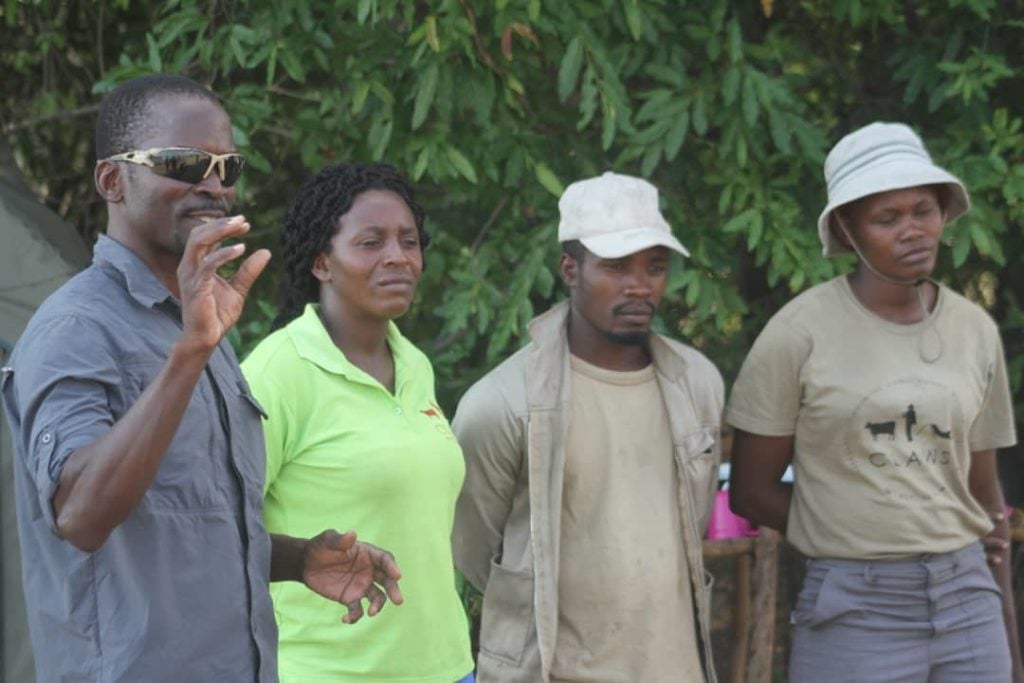Okavango Delta farmers hoping to reap benefits from carbon credits
Communal livestock herding sequesters carbon, improves soil quality

By Boniface Keakabetse for Okavango Express
Farmers in the Okavango Delta will soon trade in carbon markets courtesy of the climate smart project being implemented in the area by conservation organisation, CLAWS Conservancy.
The Okavango Delta is a UNESCO World Heritage Site and home to one of the most important core lion populations in southern Africa. In 2013, 50% of the known lions were killed through poisoning and shooting in retaliation for devastating livestock losses.
Following this, CLAWS Conservancy established a community engagement programme called
‘Pride in our Prides’ to mitigate this conflict and develop innovative approaches to promote
coexistence between communities and lions.
Dr Mudongo, the ecologist for the project, told The Okavango Express that they are working closely with the arable farmers practising rain-fed agriculture in the area. The CLAWS project arranges with the farmers to move livestock from its communal herding programme into the farms after harvest season so the cattle can eat the residue.
“We kraal (enclose) the animals inside the ploughing fields so they help to fertilise the fields which further put carbon into the soil to improve fields productivity,” he said
Dr. Mudongo explained that they want to go step further by selling carbon credits.
“With good implementation farmers will benefit from the carbon footprint we are targeting to achieve in the area,” he said. “The plan is to quantify this carbon that we put into the soil to sell in the carbon markets.”
People or organisations whose activities mean more carbon has been stored in trees, soils, or even the oceans, or less carbon has been emitted, than would have happened without their activities, can add up the tonnes of carbon they have sequestered, reduced or avoided being emitted. These credits can then be sold on the voluntary carbon market with other global entities who want to offset their own emissions The money received can be further utilised for sustainable activities, thus earning more carbon credits to be sold.
Further Dr. Mudongo reiterated that the approach of herding by moving cattle together is a climate smart way of livestock farming.
“As the herds move together they open up areas with large unpalatable grasses normally not grazed by animals. People usually used controlled burning as a strategy to control growth of unpalatable pastures. But we know fires have a big negative impact on the environment. You can burn all pastures and if there are inadequate rainfalls given unpredictable rainfall pastures farmers lose all grazing which leads to drought, impacting livelihoods.”
According to Dr. Mudongo the large herds of livestock improve the soil quality as the collective dung serves as organic matter that improves the soil fertility.
“When it rains, the grass is fertile and more grass can grow which improves the grazing pastures,” he said.
The cattle do not only deposit nutrients into the soil, but also put in organic matter which has a lot of carbon. That’s a helpful and efficient way of removing carbon in the atmosphere and depositing it back into the soil along the wetlands. As we know carbon is one of the biggest greenhouse gases contributing to global warming.
Since rolling out this programme farmers have been motivated to participate, enticed by the many benefits. CLAWS also plans to expand the herding programme from its base in Eretsha to the neighbouring village of Gunotsoga before June this year. In Gunotsoga farmers have pledged 400 cattle to participate. In Beetsha there are 700 cattle waiting to enrol in the project.
Dr. Mudongo said future plans are to begin signing conservation agreements or rangeland stewardship with the farmers to help monitor actions of the participants and issues of environmental protection compliance while also maximising the benefits by farmers.
“This will be a voluntary contract not legally binding enforceable by the community itself.”
This article is reproduced here as part of the African Conservation Journalism Programme, funded in Angola, Botswana, Mozambique, and Zimbabwe by USAID’s VukaNow: Activity. Implemented by the international conservation organization Space for Giants, it aims to expand the reach of conservation and environmental journalism in Africa, and bring more African voices into the international conservation debate. Written articles from the Mozambican and Angolan cohorts are translated from Portuguese. Broadcast stories remain in the original language.
Read the original story here:

Join our commenting forum
Join thought-provoking conversations, follow other Independent readers and see their replies